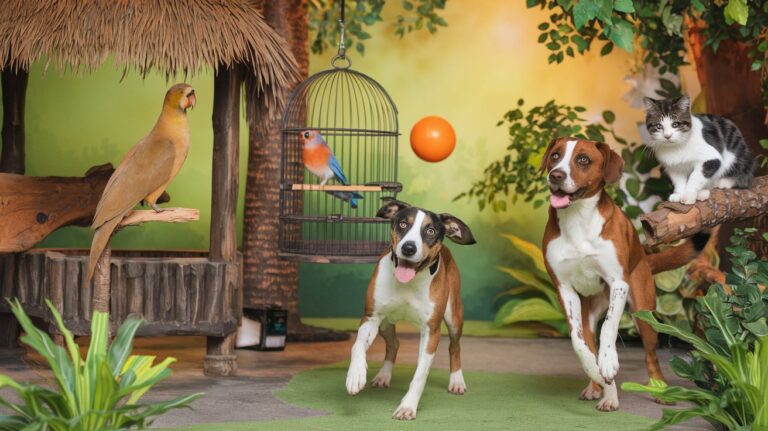Best Hypoallergenic Cat Breeds for Families
Best Hypoallergenic Cat Breeds for Families
When considering adding a feline friend to your family, allergies can often be a concern. While no cat is completely hypoallergenic, certain breeds produce fewer allergens than others, making them suitable for families with allergy sufferers. In this article, we will explore the best hypoallergenic cat breeds for families, their characteristics, and why they might be the perfect addition to your home.
Understanding Hypoallergenic Cats
Hypoallergenic cats are those that are less likely to trigger allergies in sensitive individuals. The majority of cat allergies are caused by a protein called Fel d 1, found in cat saliva, skin, and dander. Certain breeds produce lower amounts of this protein, thus offering a more allergy-friendly option for families.
Benefits of Owning a Hypoallergenic Cat
1. **Reduced Allergic Reactions**: The main benefit is obviously the potential reduction in allergic reactions within your home. This can make it a lot easier for families who may have members with allergies to enjoy the companionship of a cat.
2. **Family-Friendly**: Many hypoallergenic breeds are known for their sociable and gentle nature, making them great companions for children and other pets in the household.
3. **Varied Personalities**: From playful to relaxed, hypoallergenic breeds come with varied personalities, so you can find a cat that fits your family’s lifestyle.
Top Hypoallergenic Cat Breeds for Families
Below are some of the best hypoallergenic cat breeds suitable for family environments:
Siberian
The Siberian cat is a large, fluffy breed that is often overlooked in the hypoallergenic category. Despite their fur, they produce less Fel d 1 protein compared to other breeds. They are known for their friendly and playful demeanor, making them great companions for families. Their intelligence and affectionate nature also add to their appeal.
Siamese
Siamese cats are known for their striking blue eyes and short, sleek coats. They are highly social, intelligent, and vocal, making them an engaging addition to any family. Being a short-haired breed, they require less grooming, which, in turn, means less dander and saliva spread around the home.
Bengal
Bengals have a distinct appearance with their leopard-like spots and striking coat patterns. They are active, playful, and require stimulation, which can be great for families with younger children. Bengals tend to produce lower levels of allergens and are relatively easy to groom due to their short coat.
Devon Rex
The Devon Rex stands out due to its unique curly coat and large ears. This breed is known for its playful and affectionate nature. They are highly social and often crave human interaction, making them an excellent addition to family life. Their short coat means they shed less and produce fewer allergens, making them a hypoallergenic option.
Cornish Rex
Like the Devon Rex, the Cornish Rex features a short, soft coat that requires minimal grooming. This breed is playful, energetic, and loves to interact with people, making them great companions for kids. They are also known to be adaptable, which can be beneficial for families with varying lifestyles.
Oriental Shorthair
The Oriental Shorthair is closely related to the Siamese and is known for its sleek body and playful personality. They have a short coat that comes in a multitude of colors and patterns. These cats are highly social and intelligent, often forming strong bonds with family members.
Javanese
Javanese cats have a medium-length coat but are less prone to shedding due to their single-layer fur. They are known to be curious and playful, often entertaining themselves and their families with their antics. Javanese cats are affectionate and loving, making them wonderful family pets.
Sphynx
The Sphynx is a unique breed known for its hairless appearance. While they don’t have fur that produces dander, Sphynx cats do require regular bathing to remove oil build-up on their skin. They are affectionate, social, and tend to be very playful, making them suitable for families looking for a cat that enjoys interaction.
Tips for Reducing Allergens in Your Home
1. **Regular Cleaning**: Vacuum your home regularly using a vacuum equipped with a HEPA filter that can trap allergens effectively. Dust surfaces regularly to minimize dander.
2. **Cat Grooming**: Regularly brushing your cat can help reduce the amount of loose hair and dander in your home. Consider using wipes designed to reduce allergens on your cat’s fur.
3. **Air Purifiers**: Invest in HEPA air purifiers to clean the air in your home. This can significantly reduce airborne allergens.
4. **Designated Cat-Free Zones**: Establish specific areas in your house, like bedrooms, where pets are not allowed. This can help reduce allergen build-up in spaces where allergy sufferers spend their time.
5. **Bathe Your Cat**: Regular bathing can help lessen the amount of dander and allergens that your cat sheds.
Conclusion
Choosing the right hypoallergenic cat breed can make a significant difference in your family’s experience with pets. While all cats can produce allergens, certain breeds are better suited for families with allergy sufferers. The Siberian, Siamese, Bengal, Devon Rex, Cornish Rex, Oriental Shorthair, Javanese, and Sphynx breeds are some of the best options that provide the companionship of a cat without overwhelming allergic reactions. By adopting one of these breeds and following some allergy-reducing tips, you can create a harmonious home that allows everyone to enjoy their furry friends.







